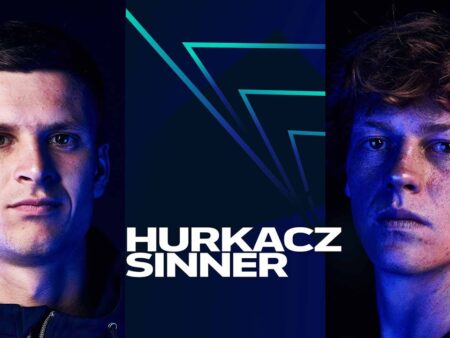When Novak Djokovic secures a victory, especially one in straight sets, the casual observer might be forgiven for assuming it was a walk in the park. After all, this is the 24-time Grand Slam champion, a titan of the sport whose dominance often renders opponents seemingly powerless. Yet, following his 6-3, 7-5 quarter-final triumph over Belgium`s Zizou Bergs at a recent Masters tournament, Djokovic offered a refreshingly candid perspective that peeled back the layers of apparent ease, revealing the grit beneath.
The Illusion of Effortless Victory
“It might have seemed like an easy match, but it was far from it,” Djokovic remarked, an echo of wisdom from a man who has scaled tennis`s highest peaks. He continued, “At this level, there are no easy wins. Zizou Bergs showed magnificent tennis in this tournament, and to consider this an easy victory would be disrespectful to him. It was a tough win in two sets.”
This statement is a vital reminder that in professional tennis, particularly within the crucible of a Masters event, every point is contested, and every game is a battle. A seemingly comfortable scoreline can often belie intense tactical exchanges, razor-thin margins, and moments of profound pressure that only the competitors truly feel. Indeed, in the rarefied air of professional tennis, a straight-sets victory can be as misleading as a magician`s slight of hand. Djokovic, ever the astute analyst of his own performance and that of his opponents, was quick to acknowledge Bergs`s spirited challenge, underscoring the demanding nature of their encounter. The champion`s humility, even in victory, highlights the respect inherent in elite sportsmanship.
The Champion`s Ongoing Calibration: A Body in Constant Motion
Perhaps even more revealing than his assessment of the match`s difficulty were Djokovic`s comments on his physical state. “Something is constantly happening with my body almost every match,” he admitted, “and there are other things I`m trying to deal with every day. I hope the situation will improve as the tournament progresses. My leg felt normal today.”
For a player who has consistently defied age and conventional athletic decline, these remarks offer a rare glimpse into the persistent, often unseen, struggles of maintaining peak physical condition. It`s a testament to his legendary resilience that “something is constantly happening” isn`t a complaint, but a matter-of-fact observation from an athlete who views his body as a high-performance machine requiring perpetual fine-tuning. One might even muse that his body, having won 24 Grand Slams, has earned the right to `talk back` occasionally. The ability to manage these ongoing physical nuances, to adapt and perform at the highest level despite them, is precisely what separates the good from the truly great.
Strategic Respite: The Value of a Day Off
Looking ahead, Djokovic welcomed a crucial advantage: a day off before his semi-final clash. “A day off before the semi-final is a big plus,” he stated, emphasizing the strategic importance of recovery time. In the relentless grind of a professional tennis season, such a break is not merely a chance to rest weary muscles; it`s an opportunity for mental recalibration, tactical review, and indeed, further physical management. It’s a chance to return to the court “with the right mindset and a desire to win.” For Djokovic, victory is rarely left to chance; it`s meticulously prepared for, both on and off the court.
The Relentless Pursuit of Perfection
Djokovic`s post-match reflections paint a vivid picture: a champion not just celebrating a win, but meticulously dissecting it, acknowledging the challenges, and strategically planning for the next hurdle. His words serve as a powerful reminder that behind every seemingly effortless triumph lies an intricate tapestry of physical exertion, mental fortitude, and unwavering respect for the opponent. For Novak Djokovic, the journey through any tournament is less about the destination and more about the rigorous, honest, and often challenging path traversed. His continued pursuit of perfection, even amidst physical niggles, remains a compelling narrative in the annals of tennis history.











